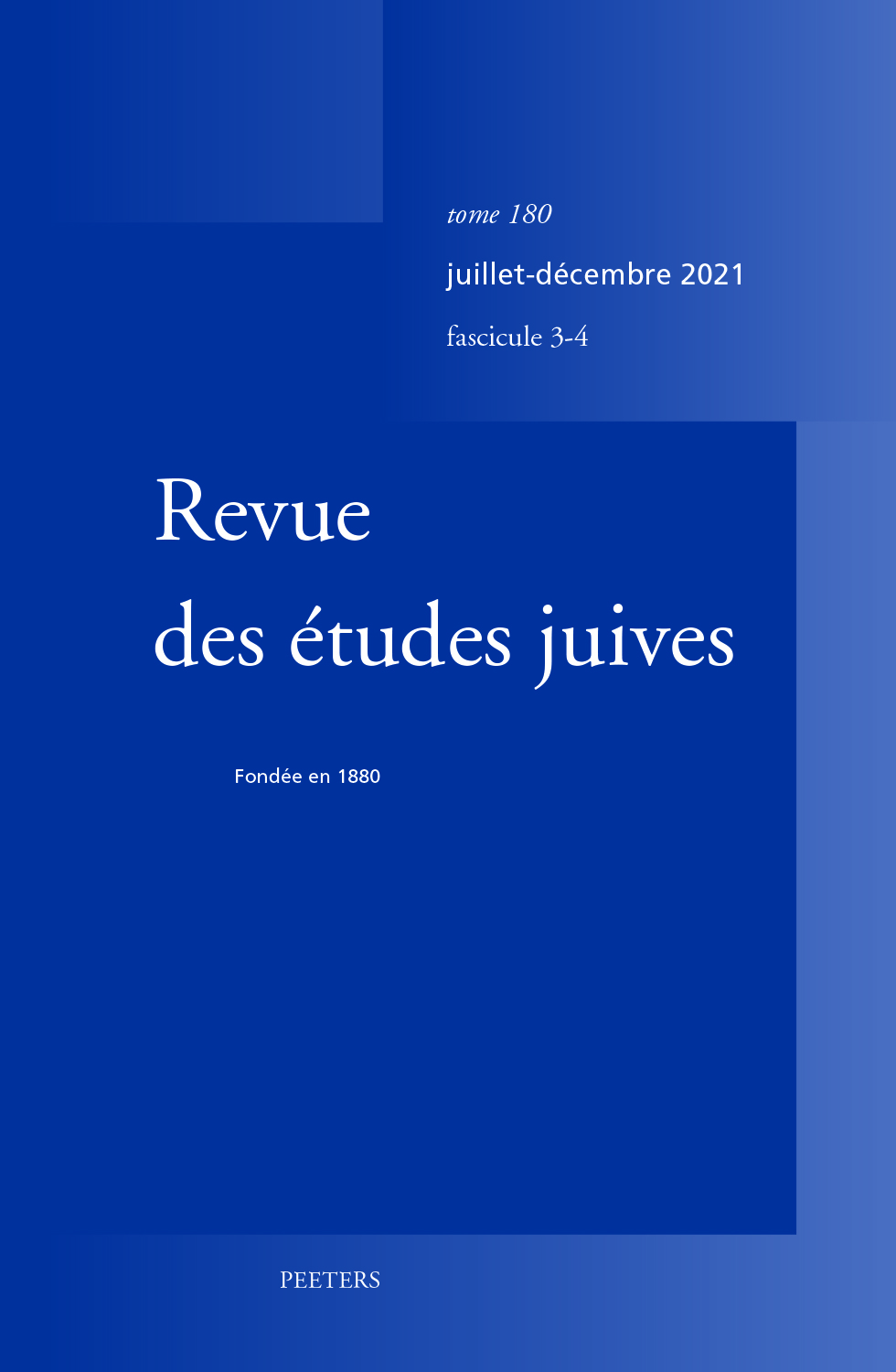 previous article in this issue previous article in this issue | next article in this issue  |

Preview first page |
Document Details : Title: La doctrine de la double vérité dans la pensée philosophique de Rabbi Isaac Albalag Author(s): SADIK, Shalom Journal: Revue des Études Juives Volume: 174 Issue: 1-2 Date: janvier-juin 2015 Pages: 145-174 DOI: 10.2143/REJ.174.1.3082881 Abstract : Le but de cet article est d’analyser l’opinion de R. Isaac Albalag sur la question de la double vérité (vérité prophétique et philosophique pouvant se contredire). Sujet important puisque cet auteur est un des derniers penseurs auxquels cette opinion est encore attribuée. Après un résumé de l’état de la recherche vient une présentation de l’opinion d’Albalag sur la prophétie dans la plus grande partie du Tiqqun ha-de'ot (sauf deux passages de la note 30). De cette présentation il ressort que la vérité prophétique ne peut être connue des non-prophètes et est donc inatteignable après l’extinction de la prophétie. De plus, même chez les prophètes, la vérité prophétique ne peut contredire la vérité philosophique mais seulement dévoiler une vérité inatteignable par la philosophie. La dernière partie de l’article analyse quelques passages de la note 30 du Tiqqun ha-de'ot affirmant la contradiction entre vérité prophétique et philosophique sur le sujet de la création du monde. Ces passages ont été, à mon avis, ajoutés par Albalag dans le but de cacher sa vraie opinion: l’éternité du monde. The aim of this article is to analyse the opinion of Rabbi Isaac Albalag on the quest of the existence of two opposite truths; philosophical truth and prophetical truth. This subject is important because Albalag is one of the last philosophers to be credited of this doctrine. After a brief abstract of the diverse positions of modern scholars on this subject, we analyse the description of prophetical truth in the major part of Tiqqun ha-de‘ot (excluding two passages of note 30). According to this view the prophetical truth can be known only by the prophet and is totally extinct after the end of the prophets’ revelation. In addition, in the mind of the prophet the prophetical truth cannot contradict the philosophical one but only can add some truth that philosophers cannot reach without prophetic revelation. The end of the article analyses some passages of note 30 that affirmed the contradiction between philosophical and prophetical truth on the subject of the creation of the world. In my opinion these passages were added by Albalag in order to hide his true opinion: the eternity of the world. |
|


